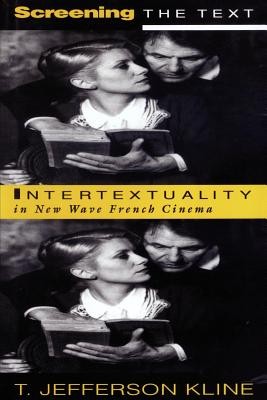
- We will send in 10–14 business days.
- Author: Jefferson T Kline
- Publisher: Johns Hopkins University Press
- ISBN-10: 0801874319
- ISBN-13: 9780801874314
- Format: 15.5 x 23.2 x 2 cm, softcover
- Language: English
- SAVE -10% with code: EXTRA
Reviews
Description
Cinema has always been "literary" in its desire to tell stories and in its need to borrow plots and narrative techniques from novels. But the French New Wave directors of the 1950s self-consciously rejected the idea that film was a mere extension of literature. With subversive techniques that exploded traditional methods of film narrative, they embraced fragmentation and alienation. Their cinema would be literature's rival, not its apprentice. In Screening the Text, T. Jefferson Kline argues that the New Wave's rebellious stance is far more complex and problematic than critics have acknowledged. Challenging conventional views of film and literature in postwar France, Kline explores the New Wave's unconscious obsession with the tradition it claimed to reject. He uncovers the wide range of the literary and cultural texts--American films, classical mythology, French literature, and a variety of Russian, Norwegian, German, and English writers and philosophers--as "screened" in seven films: Truffaut's Jules et Jim; Malle's Les Amants; Resnais's L'Année dernière à Marienbad; Chabrol's Le Beau Serge; Rohmer's Ma Nuit chez Maud; Bresson's Pickpocket; and Godard's Pierrot le fou.
EXTRA 10 % discount with code: EXTRA
The promotion ends in 17d.11:55:57
The discount code is valid when purchasing from 10 €. Discounts do not stack.
- Author: Jefferson T Kline
- Publisher: Johns Hopkins University Press
- ISBN-10: 0801874319
- ISBN-13: 9780801874314
- Format: 15.5 x 23.2 x 2 cm, softcover
- Language: English English
Cinema has always been "literary" in its desire to tell stories and in its need to borrow plots and narrative techniques from novels. But the French New Wave directors of the 1950s self-consciously rejected the idea that film was a mere extension of literature. With subversive techniques that exploded traditional methods of film narrative, they embraced fragmentation and alienation. Their cinema would be literature's rival, not its apprentice. In Screening the Text, T. Jefferson Kline argues that the New Wave's rebellious stance is far more complex and problematic than critics have acknowledged. Challenging conventional views of film and literature in postwar France, Kline explores the New Wave's unconscious obsession with the tradition it claimed to reject. He uncovers the wide range of the literary and cultural texts--American films, classical mythology, French literature, and a variety of Russian, Norwegian, German, and English writers and philosophers--as "screened" in seven films: Truffaut's Jules et Jim; Malle's Les Amants; Resnais's L'Année dernière à Marienbad; Chabrol's Le Beau Serge; Rohmer's Ma Nuit chez Maud; Bresson's Pickpocket; and Godard's Pierrot le fou.


Reviews